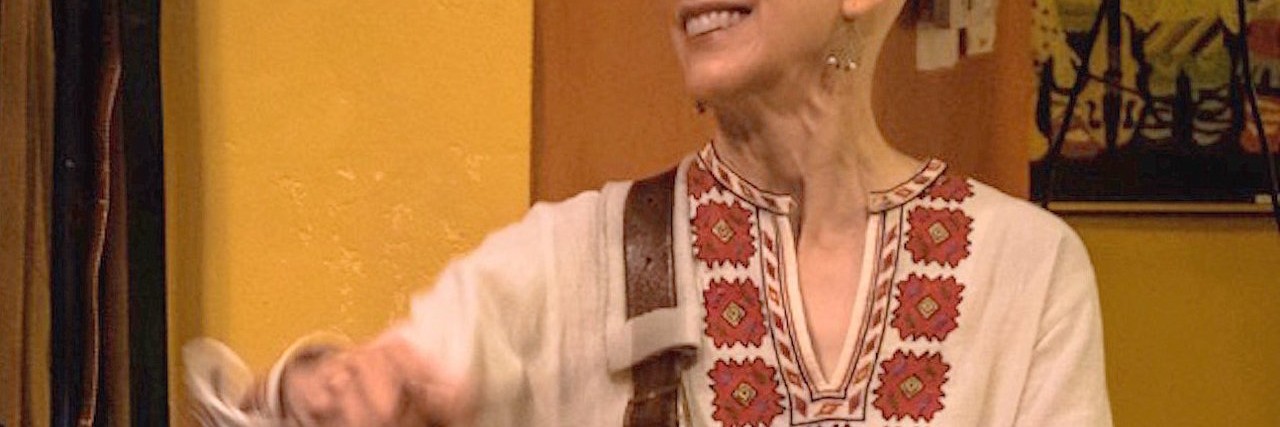I had great hair until my late 40’s. Then the first bald spots appeared, and I learned that I have alopecia areata, an auto-immune disorder where the immune system attacks the hair follicles, causing partial or total hair loss.
For about seven years, I continued to have occasional small bald spots that were always hidden by my thick hair. But in 2007, the condition accelerated and I lost my eyebrows and all the rest of my body hair within a couple of months. I decided to get tattooed eyebrows and eyeliner, which I prefer to applying makeup every day.
I tried wearing wigs, but gave up in less than a year because I found them too hot. I began going out in public bald only a few months after losing my hair. I went from feeling like everyone was staring at me to not caring if they were. It was liberating to not have to worry about people finding out that I’m bald — this is simply who I am now. I’ve found the less concerned I am about my bald head, the less other people seem to notice or react to it.
But, as comfortable as I am being seen bald, I’m frequently reminded I’m not “normal.” At least once a week, someone asks me about “my cancer.” In the middle of a mall, a man will want to talk to me about his wife because I look like she did before she died. I’m approached in restaurants and supermarkets and asked if I’m a “survivor.” Though people mean well, these encounters always make me feel as if I’ve been grabbed by a big rubber band — snapped out of my unconcerned comfort with my appearance and back to awareness that I look “strange.”
Some encounters are worse than simply intrusive — they’re highly unpleasant or disturbing. Once, a man kept staring at me in a waiting room. I usually just ignore this kind of thing, but I was so offended that I looked at him and said, “Yes, I’m bald!”
My worst experience was while traveling in Indonesia. I was standing outside an airport with our bags while my husband went inside for a cart. Because it was extremely hot, I had nothing on my head. A group of stylishly-dressed young women came over and started laughing and pointing at me. Then they came up next to me and posed for selfies. Normally, I’m very quick to assert myself, but I was so taken aback that I simply froze. A crowd gathered, and I started to cry.
I completely support women who prefer to wear wigs, but I hope that someday more women will feel they have a choice to go without one. I also want more people to know that not every bald woman or child they see is bald due to chemotherapy.
To raise public awareness and also to help alopecians (as many of us call ourselves) feel less alone, I created a worldwide event called International Alopecia Day in 2010. On the first Saturday in August every year, people with alopecia around the world have celebrations or events. They send me photos of themselves taken on International Alopecia Day, and I assemble the photos into an annual video. I also run an alopecia support group on Facebook, and do a more light-hearted video series called “The Bald Mannequin Project.” These projects have helped me feel that something positive has come out of my hair loss.
The most amazing thing about my experience is this: Today I am more self-confident and less self-conscious than I was before I became bald. Once I started going out in public bald, I had to become less concerned about what people thought about me. It’s as simple as that.
The Mighty is asking the following: What is a part of your or a loved one’s disease, disability or mental illness that no one is aware of? Why is it time to start talking about it? If you’d like to participate, please check out our Submit a Story page for more about our submission guidelines.

